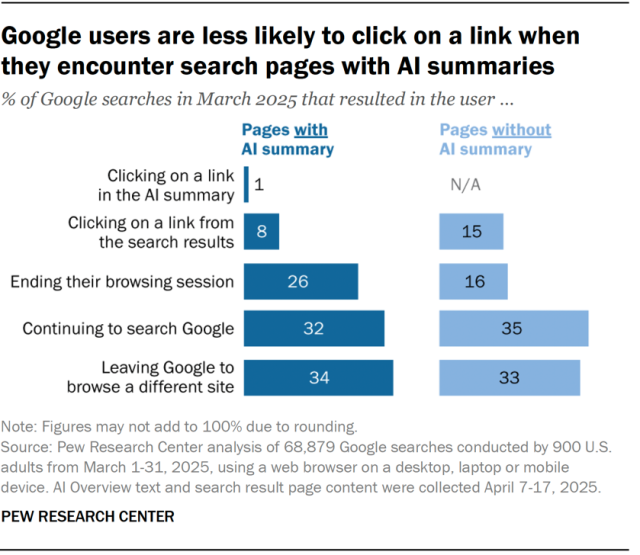
Niresh Bandaranayake
AI-driven search is no longer a novelty in 2025, it’s becoming the norm. From Google’s Search Generative Experience (SGE) to AI chatbots like ChatGPT and Perplexity, AI-first search experiences are reshaping how people find information. Users are increasingly posing questions to conversational engines and receiving synthesized answers in plain language, rather than scrolling through pages of links. A recent study from SEMRush predicts that by 2027, AI search traffic is expected to surpass organic search traffic.

This shift is redefining digital marketing and brands and SEO professionals must adapt to stay visible, build trust, and meet rising user expectations.
The Rise of AI-First Search Experiences
In the past two years, major leaps in AI have transformed search.
Google’s AI-generated answer summaries (SGE “AI overviews”) now sit atop results, and in 2025 Google rolled out a full AI Mode in search. These AI-first features integrate large language models into search, allowing users to get conversational answers with cited sources. Meanwhile, standalone LLMs like ChatGPT, Bing Chat, Claude, Perplexity, and Gemini are competing to dominate chat-based search. Even voice assistants are becoming more capable - voice AI usage is rising as natural language processing improves, enabling complex spoken queries to be understood and answered in a more human-like manner.
Instead of typing keywords and scanning links, users now ask natural-language questions and receive consolidated answers. Google’s VP of Search, Elizabeth Reid, noted that “AI in search is making it easier to ask Google anything and get a helpful response,” calling AI summaries “one of the most successful launches in search in the past decade”. In short, search is evolving into a conversation between user and AI, rather than a simple query-response of links.
Changing User Behavior and Expectations
These AI-driven interfaces are rewiring user behavior.
Instead of clicking through multiple sites, people rely on instant summaries. Google reports higher satisfaction with on-page answers. One analysis found the top organic result’s CTR drops by about 34% if an AI overview is present.
Similarly, a Pew Research study of U.S. users in 2025 shows that only 8% of searches with an AI summary led to any click on a traditional result and Similarweb estimates 60–67% of queries now end as “zero-click” searches according to some analyses.


The expectation is clear: instant, conversational answers. Users treat search engines like advisors, whether typed or spoken. The effect is a more decisive, “done” search experience - forcing marketers to rethink visibility and engagement in search.
Adapting Digital Marketing Strategies for the AI-First Era
As user behavior and search mechanics evolve, marketing strategies must adapt. In 2025, focus on these priorities to thrive in the age of AI.
- Design content for AI – Structure content clearly with headings, schema markup, and fast, mobile-friendly pages.
- Provide contextual, conversational answers – Use Q&A formats, FAQs, and natural tone. Anticipate follow-ups and mirror real queries.
- Double down on trust (E-E-A-T) – Show expertise with bios, authoritative sources, citations, and consistent accuracy.
- Elevate brand visibility beyond clicks – Ensure your brand appears inside AI answers with structured data and visibility tools like BrandRadar.
- Keep SEO fundamentals strong – Think SEO + GEO (Generative Engine Optimisation) as a unified strategy.
The Road Ahead-Search Marketing in 2025–2026
Expect AI summaries to dominate results, with ads integrated directly into answers. Personalisation and multimodal queries (voice, image, video) will rise. Brands must guard against misinformation while ensuring trust.
The winners will be those who act early—creating conversational, authoritative, context-rich content and tracking their AI visibility.
BrandRadar: Built for AI-First Search
BrandRadar tracks how your brand appears across AI-generated answers; measuring visibility, sentiment, and competitor benchmarks. With these insights, you can close content gaps, strengthen trust signals, and ensure your brand is the answer.
The AI-first era rewards early movers. Book a demo today to make sure your brand owns the answer.

